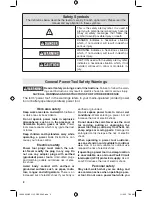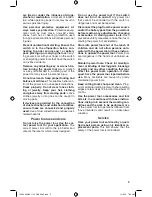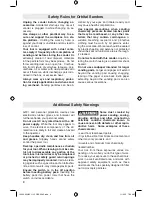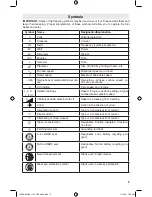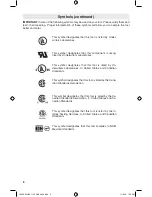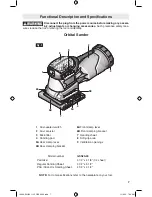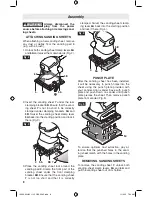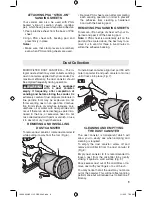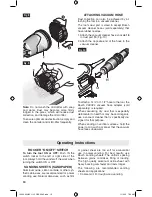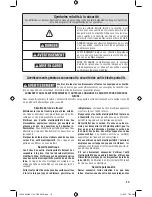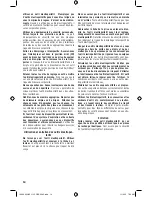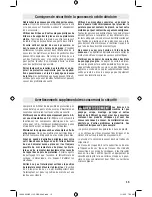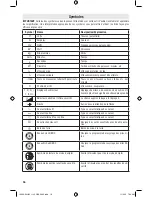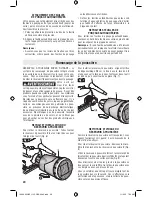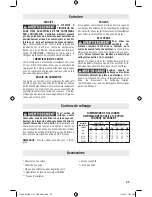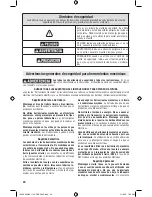
10
Note: Do not wash the microfilter with soap
and water. Dust may become more firmly
lodged in the pores, which will reduce dust
collection, and damage the micro filter.
To ensure optimum dust extraction, empty and
clean the canister and microfilter frequently.
ATTACHING VACUUM HOSE
Dust collection can also be achieved by at-
taching the tool to a vacuum cleaner.
The tool’s dust port is sized to accept Bosch
vacuum cleaner hoses (sold separately) that
have rubber nozzles.
1. Attach the vacuum cleaner hose’s nozzle
16
to dust port
14 (Fig. 10).
2. Attach the opposite end of the hose to the
vacuum cleaner.
To attach a 1-1/4” or 1-1/2” hose to the tool, the
Bosch VAC024 vacuum hose adapter (sold
separately) is required.
When vacuuming dry dust that is especially
detrimental to health or may be carcinogenic,
use a vacuum cleaner that is specifically de-
signed for that purpose.
When sanding on vertical surfaces, hold the
power tool in such a manner that the vacuum
hose faces downward.
Fig. 10
3
Fig. 8
3
Fig. 9
Operating Instructions
ROCKER “ON/OFF” SWITCH
To turn the tool ON or OFF: Push IN the
switch rocker to the left or right side of the
tool. Always hold the sander off the work when
turning the switch ON or OFF.
SANDING SHEETS (SANDPAPER)
Aluminum oxide, silicon carbide, or other syn-
thetic abrasives are recommended for power
sanding use. Natural abrasives, such as flint
or garnet sheet are too soft for economical
use in power sanding. For best results, use
Bosch sanding sheets: The uniform spacing
between grains minimizes filling or loading.
The high quality aluminum oxide sheet with
heavy backing cuts faster and lasts longer.
The following are recommended sanding
sheets and applications:
• Coarse Grit: For rough wood sanding.
1600A00HX5 11-15 GSS20-40.indd 10
11/9/15 7:22 AM


